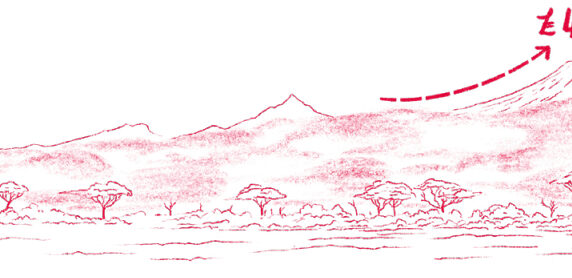Three years on from George Floyd’s murder. What have we learned?
Today marks three years since the murder of George Floyd. The slow-motion killing of a black man at the hands of a white police officer shook the world, and for good reason.
What was unexpected was how the event catalysed a long-overdue conversation about racism in so many parts of the world and across so many sectors.
Looking back, it is astonishing how most of us working in the international development, humanitarian and peacebuilding sectors, accustomed to dealing with the thorniest of issues, appear to have been completely oblivious to the issue of racism and neo-colonial attitudes in our own organisations and in the work that we do. It’s as if we were unable or unwilling to contemplate the idea that we were (and are) capable of doing harm, even when doing good. Three years on, and we are still struggling to come to terms with this simple but painful truth.
So what have we learned, if anything, in the last three years? My colleagues at Peace Direct and I have been lucky enough to have had conversations with hundreds of people from across the sector: INGOs, bilateral donors, think tanks and most importantly activists and community leaders from the ‘Global South’ or Majority World. Here are my top reflections:
- Wilful ignorance got us here. But it is no longer an excuse, and never was. We all need to educate ourselves.
- The issue is here to stay and appears to be gathering momentum. How we deal with it will define how the sector will develop in the coming years. It could be a tipping point, ushering in a new way of working, or it could lead to nothing. The odds, in my view, are evenly balanced.
- Many local actors in the Global South/Majority World are still reluctant to talk about racism and power imbalances in their partnerships with INGOs for fear of losing funding, partnerships, opportunities and access to people in power. This is a form of structural oppression. But make no mistake: they see the problems as clear as day.
- Like it or not, the term ‘decolonising’ has entered the mainstream. Anyone using the term must guard against it becoming a ‘catch-all’ term for any change, however modest. If this happens, and we strip the term of its radical and transformative agenda, then we’ve hijacked and subverted a rallying cry that was started by Global South activists decades ago. We all have a duty to make sure that this doesn’t happen.
- The majority of INGOs that we have spoken to (over 100 to date) are taking tentative steps in the right direction. If your organisation is not doing anything, then you should be worried.
Join Bond’s people of colour in development group
The Bond people of colour in development group is a brave space for people of colour (POC) working across the development and humanitarian sector. Group members share experiences and learning, both individually and from their organisations, and come together to influence the sector to address racism and inequality.
Join the group- The pace of change is excruciatingly slow, falling well behind the expectations of many local actors in the Global South. If this is not addressed soon, it may lead to a crisis of legitimacy and credibility from which it may be difficult to recover.
- There appears to be a yawning gap between the demand from INGOs for guidance on how to change, and the supply of people able to offer this advice. This is why initiatives such as the Decolonising Advisory Service from WACSI (still in development) are so urgently needed.
- Localisation appears to have become the sanitized and acceptable face of change, particularly for INGOs and donors who aren’t prepared to talk about racism or power. If you are talking about localisation in your organisation, ask yourself whether it is really a commitment to genuine transformation or not.
- The failure to reform the system demonstrates, in part, how entrenched our belief in our own expertise is. It also appears to reflect a failure of imagination, particularly of the larger INGOs, to consider a different role for themselves.
Future generations of activists and workers in our sector will judge us on how we responded to this moment. In fact, the future versions of us will look back and ask if we did enough to advance the change that the sector needs. If you ask yourselves that question in 5 years’ time, what will your answer be?
I am not one of those who wish to tear down the international development, humanitarian and peacebuilding sectors. I believe our sectors are and can continue to be an incredible force for good in the world. But we can’t pretend that we can continue the way we have been operating.
On February 5th 2008, the then Senator Barack Obama made a speech to his supporters. “Change will not come if we wait for some other person or some other time” he said. “We are the ones we’ve been waiting for. We are the change that we seek.”
Now is the time for us all to commit ourselves to this, in whatever way we can and in whatever spaces we operate in.
Category
News & ViewsThemes
Anti-racism



